Cooling emergency vest protects against neurological damage
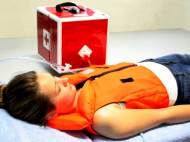 Researchers from the Hohenstein Institute in Bönnigheim developed a system that can be used to prevent neurological damage after successful resuscitation of a cardiac arrest. It is a relatively simple and non-invasive method which employs surface cooling of the body without the need for electric power. That makes these textile cooling pads ideal as additional first aid in case of cardiac arrest.
Researchers from the Hohenstein Institute in Bönnigheim developed a system that can be used to prevent neurological damage after successful resuscitation of a cardiac arrest. It is a relatively simple and non-invasive method which employs surface cooling of the body without the need for electric power. That makes these textile cooling pads ideal as additional first aid in case of cardiac arrest.
Although defibrillators have now become mandatory in public buildings and public transport, successful reanimation for most cardiac arrest patients is merely a partial success. The lack of blood flow after the heart stops functioning as well as lack of oxygen supply before ambulance arrives can cause consequential neurological damage.
Led by Prof. Dr. Dirk Höfer, researchers from the faculty of Hygiene, Environment & Medicine at the Hohenstein Institute have developed the prototype of a textile cooling vest which could be used as a supporting new therapy method for first aiders. The new type of medical product promises improved acute treatment for cardiac arrest by very quickly cooling down the patient’s body.
Targeted lowering of the temperature inside the body has been proven to protect the brain against irreparable neurological damage during the lack of blood flow which leads to lowered transportation of vital oxygen. Hohenstein scientists developing water-proof and absolutely airtight textile hollow fabric with cooling pads.
The cooling pads are connected to a metal container under vacuum pressure containing zeolite – a mineral widely used in industry for water purification, as catalysts, for the preparation of advanced materials and in nuclear reprocessing. When a valve which regulates inner chambers is opened, the water in the pads is instantly cooled down to nearly freezing, thus enabling effective way to drain body heat from the patient’s body.
“The cooling pads harbor enormous potential in the neurological rehabilitation after cardiac arrests”, said Höfer. “In addition to the benefits for the affected individual, every prevented case of invalidity is also a great financial advantage for the general public.”
The cooling system based on zeolite and water adsorption technology has a simple design and allows drastic lowering of the core body temperature after occurrence of a cardiac arrest at any time and in any place. The Hohenstein Institute researchers are already devising other applications for textile cooling and heating processes their approach can achieve.

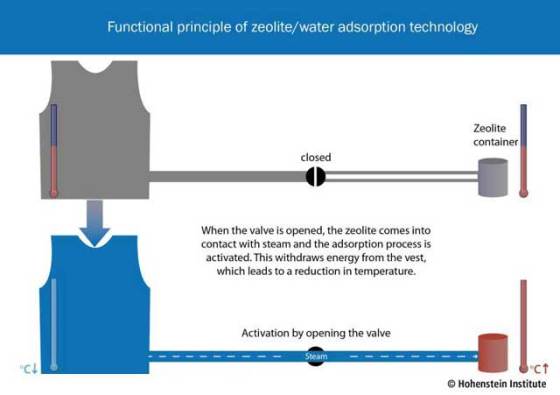


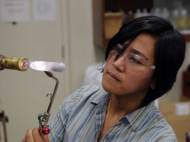
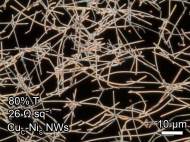
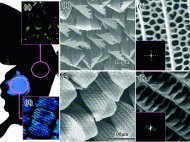
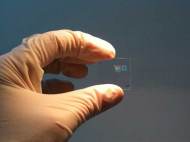


Leave your response!